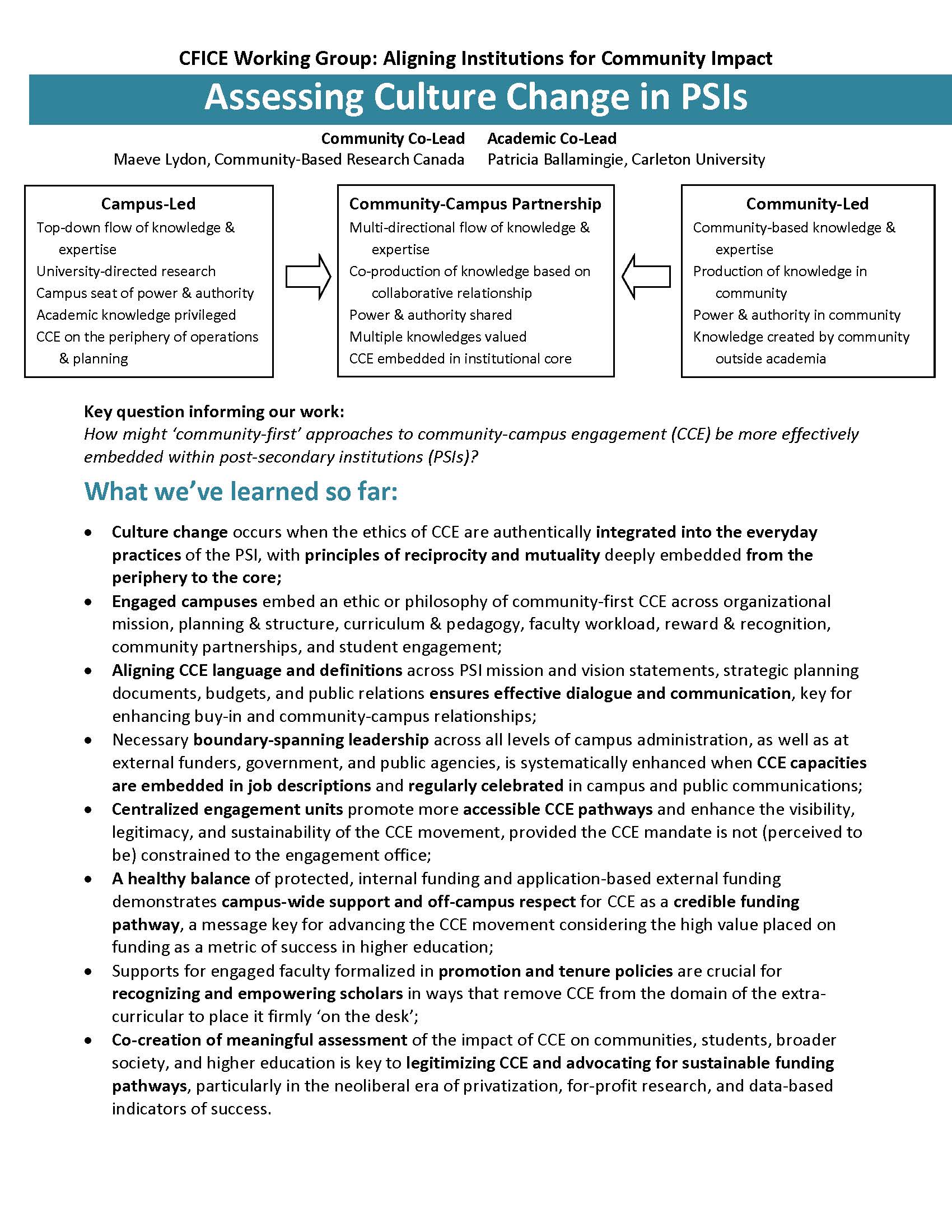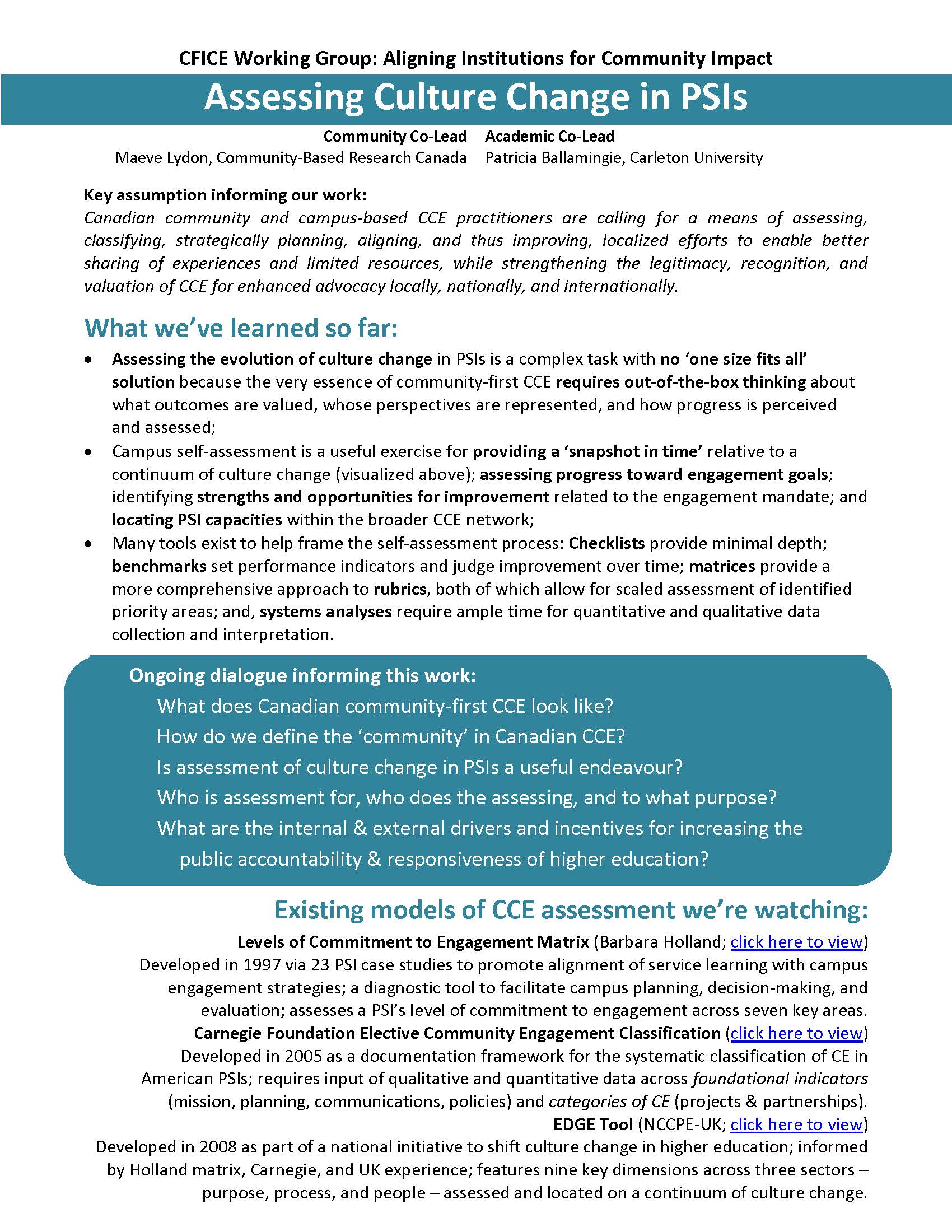by Katalin Koller, Aligning Institutions for Community Impact Working Group Research Associate
At the beginning of Phase II of CFICE, the newly formed Aligning Institutions for Community Impact Working Group (AICI-WG) was tasked with investigating the co-creation of a community-first classification system for community-campus engagement (CCE) in the Canadian context. To prepare for this work, the AICI-WG Core Team, comprised of the community and academic co-leads and the research associate, undertook a literature review of academic sources related to ‘institutionalizing CCE’ in higher education.
The review also produced information related to CCE classification or ‘self-assessment’, identifying three existing models from the academic community (Holland, 1997), the United States (Carnegie, 2005), and the United Kingdom (NCCPE-UK, 2008). Each tool incorporated lessons learned from previous renditions, and the AICI-WG Core Team was drawn to the 2008 EDGE Tool, a matrix for PSIs to self-assess their level of public engagement (PE) created by PSIs as part of a national strategy to improve PE in higher education in the United Kingdom. At the CFICE Phase I Evaluation Symposium in January, 2017, the AICI-WG introduced the literature review findings and the EDGE Tool to garner feedback from CFICEers during two open space sessions.
What was quickly apparent is that it is more appropriate in the Canadian CCE movement to talk about ‘culture change’ in higher education, the process whereby an ethic of CCE might be authentically embedded in the practices of PSIs, rather than ‘institutionalization’, which implies a structural rather than a relational process. Additionally, open space collaborators felt that a continuum of culture change must adequately represent the multi-directional flow of knowledge and expertise from communities and PSIs that contributes to community-first CCE in Canada. This has been reflected in the visual below where community-led and campus-led research, capacity, and knowledge creation feeds into efforts to work in mutuality and reciprocity in the co-creation of knowledge. Also highlighted below are the key findings and guiding question of the literature review of academic sources, as well as the assumptions and ongoing dialogue informing this work.
Next steps related to this initiative include in-depth interviews with key informants from CFICE and the AICI-WG and a 60-minute workshop on CCE assessment in the Canadian context taking place Thursday, May 4th at C2UExpo2017 For the Common Good in Vancouver. To offer feedback on our work to date, or to suggest a model of assessment that we should know about, please respond in the comments section below or email AICI-WG Research Associate Katalin Koller at: katalin.koller@carleton.ca
Click on the images below to open the page as a PDF, or download the 2-page document instead.

